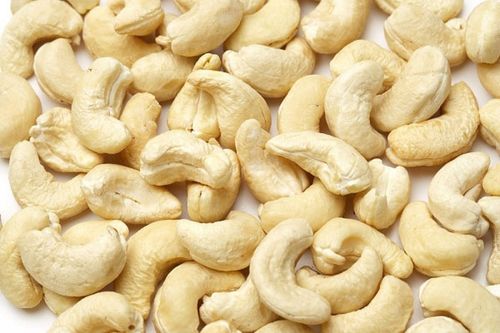This is an automatically translated article.
Tree nut allergies are not medically common, however, you should not ignore the symptoms of this reaction. A tree nut allergy can throw off the balance of the immune system and cause mild to serious medical conditions.1. What is a tree nut allergy?
Tree nut allergy is considered one of the most common food allergies in both adults and children. Allergic reactions to tree nuts can range from mild - mild itching, watery eyes and itchy throat - to life-threatening. You may be allergic to just one tree nut or several. Tree nuts that can cause an allergic reaction include: Almonds, walnuts, pecans, hazelnuts, pine nuts, litchi, etc.Allergies to a nut increase your risk of developing an allergic reaction. allergic to other nuts. However, you need to be examined by an allergist to determine your specific condition, so that the doctor can make recommendations to avoid using tree nuts for you.
2. Symptoms of tree nut allergy
If you are allergic to tree nuts when you come into contact with them, you may experience symptoms of an allergic reaction. In some cases, these symptoms will appear for only a few minutes. In other cases, an allergic reaction can take 30 minutes to several hours before symptoms begin.Tree nut allergy may have signs including:
Abdominal pain, including cramping and abdominal pain. Nausea and/or vomiting. Diarrhea . Difficulty swallowing. Itchy mouth, throat, skin, eyes, hands, or other body areas. Shortness of breath and difficulty breathing. Wheeze. Stuffy or runny nose. Anaphylaxis . Anaphylaxis is very rare and is the most severe form of allergic reaction. In the case of anaphylaxis, an allergic person will usually begin with symptoms within 5 to 30 minutes of being exposed to the tree nut. Symptoms of anaphylaxis include: Swollen throat, wheezing, fainting, difficulty swallowing, vomiting, red rash,...
Allergies to peanuts, shellfish and tree nuts are also included. one of the most common causes of anaphylaxis. People with severe tree nut allergies are always prepared to deal with an allergic reaction. So they carry an auto-injector of epinephrine with them at all times.
3. Risk factors for tree nut allergy
3.1. Allergic to peanuts Peanuts are legumes but are allergic to peanuts will increase your risk of having a tree nut allergy. It is estimated that between 25 and 40% of people who are allergic to peanuts are also allergic to tree nuts.3.2. Allergies to other tree nuts If you are allergic to any one tree nut, you can easily become allergic to other nuts. An immunologist may choose to perform a complete allergy screening test to find all of your allergies.
3.3 History of allergies from family members If your parents or siblings have a tree nut allergy, you and other family members are also at higher risk. The doctor can provide guidance on family allergy testing to determine the current status of family members.

Nguy cơ dị ứng hạt cây sẽ tăng nếu bạn bị ứng lạc
4. Diagnosis of tree nut allergy
Tree nut allergies can cause life-threatening reactions. That's why it's important to get a definitive diagnosis from an allergist. To diagnose symptoms of an allergy as well as the type of nut that's causing it, an allergist may perform a skin prick test.During this test, your skin will be exposed to a variety of allergens. If you are allergic to one of the allergens, your skin will react and swell or turn red. Your doctor may also recommend blood tests depending on your age and other medical conditions you have.
If your test results are inconclusive, your doctor may ask you to try foods. You will be exposed to the allergen (a specific food) in gradually increasing doses over several hours. Your doctor will supervise these tests in the event of an allergic reaction. Medicines and emergency services are always set to be available during the test.
5. Foods to avoid if you have a tree nut allergy
Tree nut allergy cannot be cured. Therefore, to prevent allergic reactions to tree nuts, it is best to avoid using tree nuts. You need to practice to strictly avoid nuts and products that may contain nuts to protect you against allergic reactions. Your doctor will advise you to avoid an allergic reaction, especially in children who have been diagnosed with an allergy to a tree nut. At the same time, these children must avoid all tree nuts because all tree nuts are potentially allergenic for them.The most widely consumed tree nuts include: Almonds, Brazil nuts.
Cashews, hazelnuts, macadamia nuts, pecans, pine nuts, pistachios, walnuts, nut butters, nut oils and natural nut extracts are also recommended to be limited to those with allergies plant seed response.
In the United States, food manufacturers are required to list substances in foods if their food may contain allergens, including tree nuts. You should also read the ingredient list on food labels carefully to make sure the food is allergen-free. However, food can still be contaminated by contact with tree nuts during production.
However, do not assume that the foods you eat will always be safe. Food manufacturers change their recipes frequently and they may start adding tree nuts without notice. That's why you should be careful when reading labels every time you choose food. Especially if you have a severe allergy to tree nuts.
6. Hidden Sources of Tree Nuts
Allergens may be latent in products that you may not suspect despite labeling guidelines imposed by the Food and Drug Administration (FDA). Tree nut protein can be found in:Dry foods: Cookies, cereals, crackers, protein bars and breakfast items. Desserts: Candy, chocolate, ice cream and frozen yogurt,... Beverages: Flavored coffee, alcoholic beverages and liqueurs,... Perishable food products: Cold cuts, cheeses, marinades and spices,... Products for personal hygiene: Lotions, shampoos, perfumes and soaps,...

Bạn cũng có thể bị dị ứng hạt cây khi sử dụng một số sản phẩm như bánh quy, ngũ cốc,...
7. Living with tree nut allergies
The progression of a tree nut allergy depends on two factors: Your age and the severity of your allergy. Adults who are diagnosed with tree nut allergy should define it as a lifelong condition.For children, the response progression is a little different. Some children are more susceptible to food allergies, including allergies to tree nuts. Compared with egg or milk allergy, the rate of tree nut allergy in children is only 10%. Children with a mild allergy to tree nuts (who do not experience anaphylaxis when exposed to the allergen) are more likely to have an allergic flare-up than children who have had a very severe allergic reaction to tree nuts.
Vinmec International General Hospital currently has a package of examination and advice on treatment of atopic dermatitis to help customers assess the general condition of the disease and advise on measures to help prevent recurrence.
When registering for a package of examination and consultation for treatment of atopic dermatitis, customers will receive: Dermatology specialist examination. Perform tests such as: Quantification of IgE, fresh mycobacteria, specific IgE quantification with respiratory allergens - food (Panel 1 Viet), test Rida Allergy Screen (panel 1), ..
.
Please dial HOTLINE for more information or register for an appointment HERE. Download MyVinmec app to make appointments faster and to manage your bookings easily.
Reference article: healthline.com












